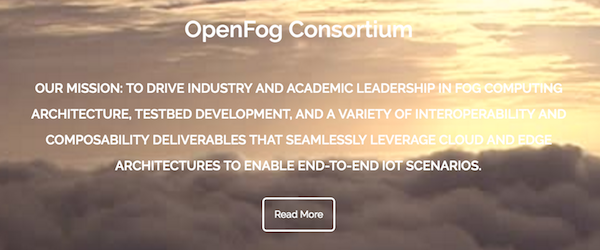If I were a large tech company that missed the disruption in the cloud, I’d be looking for a fast way to make my business relevant again. The obvious solution is to leverage my size and brand to launch new products that are valued by my customers. Unfortunately the reasons I missed the cloud wave in the first place - an entrenched value chain resistant to new product ideas, an internal bureaucracy that inhibits agility, and a management incentivized to not take risks - are likely to conspire against me in creating successful new products. The next obvious alternative is to acquire companies that have post-cloud products that matter to customers. Unfortunately even with a great M&A strategy, I’ll still be playing catchup for years while I integrate my newfound products and technologies. So that leaves me with a third possible path: put some lipstick on the pig and hope no one notices.
When I saw my first mention of “fog computing” back in March, I laughed, believing it was HBO’s Silicon Valley come to real life. I imagined a group of marketers sitting around the table struggling to come up with a new term that played off cloud computing, but was really just a rebranding of what they already sold (“mist computing?”, “stratosphere computing?”, “smog computing?”). But then a couple weeks ago I came across another article mentioning fog computing. This time the explanation went something like this: IoT… lots of devices… network latency… yada yada yada… fog computing.
I consider myself a reasonably intelligent person, and I will confess to having no idea what the author was talking about. Then this week yet another article passed my desk on fog computing. This article provided a link to the OpenFog consortium (you really can’t make this up), whose founding members are… (wait for it)... Cisco, Intel, ARM, Dell, and Microsoft. If I exempt Microsoft from this list, under an assumption this was the result of a failed hostage negotiation, that leaves me a list of companies that are either… well, either dead or dying.
The good news for the OpenFog consortium is that they are not at risk of the worst marketing initiative of the decade. That distinction remains safely in the hands of Research In Motion, who in 2012 launched a new hashtag promoting jobs at their company (you’ll have to look that one up). But this one is close. Really close.
So please, stop using the term fog computing. It may not cause headaches, internal bleeding or death - but it will definitely make you look bad.
